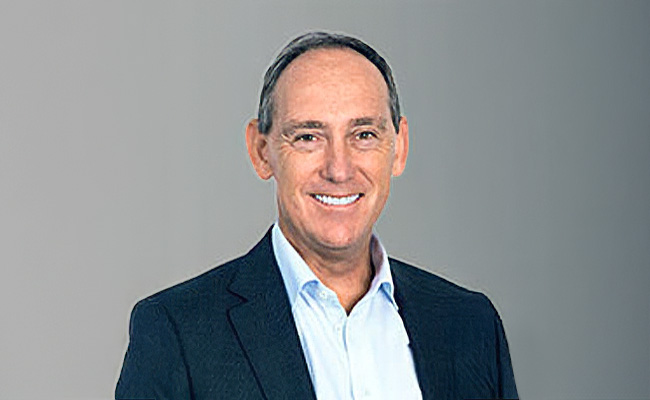Why is it that Shoprite is able and willing to produce an outstanding AGM and the Lewis Group and Truworths International produce affairs that scream total indifference to shareholders?
All three are in the retail sector, which means their customers are everywhere. You’d think even if they didn’t give a toss about what their shareholders think they might see some benefits in impressing a wider audience.
You don’t have to go full Warren Buffett, with his high-performance Berkshire Hathaway jamborees, but there is plenty of scope to use AGMs to connect with more than the stiff shirts who front the fund management industry. And it would be entirely appropriate to do so, given these stiff shirts are actually managing not their money, but ours.
Surely there’s a means within the AI universe to enable individuals (savers and pension fund members) to easily access and exercise their voting rights – even if it’s only a portion of a share? These are rights that have been sucked up into the opaque fund management system that dominates our investment world.
Reducing some of that dominance among the real owners of the investment funds might make corporates more accountable. It would certainly make their AGMs more valuable. And more useful than what we currently have, which is all too often a dull, formulaic meeting, the outcome of which has been determined days earlier through private engagements between board directors and fund managers.
Right now, only Shoprite, Woolworths, Spar and Old Mutual give any indication they care about anyone other than the stiff-shirt brigade. Arguably, their AGMs are designed for true shareholder democracy.
Dull as a three-piece suite
The same can’t be said for Lewis, where it’s hard not to suspect that the furniture retailer’s board goes out of its way to present dull AGMs.
The only saving feature: brevity. Though even 20 minutes did seem long at the time; perhaps because for 14 of them, chair Hilton Saven was reading out the resolutions. He did hand over to fellow director Daphne Motsepe to read out the resolution relating to his re-election. That switch was as much excitement as we were going to get and proof that there were at least two directors attending the meeting.
Saven asked everyone to record their vote after each resolution but did give shareholders an opportunity to ask questions before he closed the voting platform at 9.18am. There were no questions. And so, after informing shareholders that all resolutions had been passed, Saven closed the meeting at 9.20am.
Here’s what it scored. For offering virtual-only attendance, it gets 10 out of 20 and for ease of access it gets five out of five. For quality of video feed the score was two out of 20 – that’s because the video camera was focused almost entirely on Saven who rarely looked into it as he read from a prepared script, and managed to give the impression he’d prefer to be almost anywhere else.
Questions could be presented in writing via the online chat, which is useful, or via the phone line, which is almost pointless, so Lewis gets four out of 10. As for the flow of questions and the quality of concurrent communication, well, there wasn’t any. There were no minutes of previous AGMs available, which means zero out of 10. That brings the total score to 21 out of a possible 65.
But apparently it went down well with the fund managers, who voted overwhelmingly in favour of all of the resolutions. Lewis has been performing strongly over the past two years, which is probably why the 74% of investors (the largest is Coronation with 24.6%) represented at the meeting voted so enthusiastically.
All but two of the resolutions scored above 90% (the exceptions related to non-executive directors’ fees and the executive performance scheme, which scored in the high 80s). So, absolutely no concern about the fact the chair has been on the board for 21 years and the lead independent director, Fatima Abrahams, for 20 years.
Hilton Saven, times two
Next up was Truworths and, yes, here we were once again (sort of) facing chair … Hilton Saven, while he looked down as he read his prepared script.
The reading of the resolutions, which took 16 minutes, was followed by questions and, fortunately, there were some. The first related to the tenure of a number of directors, including the chair who has been on the board for 22 years. Lead independent director Hans Hawinkels gave pretty much the same response shareholders have heard each of the past five or so years: “There is a process, and the issue will be dealt with over time …”
As for the independence of “independent directors” (Saven is described as independent), Saven assured shareholders that Truworths has “a stringent policy in place to assess the independence of directors”. He didn’t say if this policy was overseen by the board.
Inevitably, the question of CEO succession was raised. CEO Michael Mark has led the company since the late 80s and shows no signs of wanting to leave. As in previous years the chair didn’t seem to feel there was much urgency. “We will be announcing in due course succession plans for the CEO when the time is relevant,” Saven told shareholders.
The meeting ended at 10.16am (it started at 9.30am) after a business update was read out.
So, for offering a virtual-only attendance option, Truworths scores 10 out of a possible 20 and for ease of access it gets five out of five. The lifeless quality of video feed gets a dismal three out of a possible 20. Because shareholders were able to ask questions verbally and in written form Truworths scores 10 out of 10, but the quality of communication was a grim five out of 20. No minutes of previous AGMs are available so that’s zero out of 10, bringing the total score to 33 out of a possible 85.
What is remarkable, given not only disappointing profits and share price performance, is that so few shareholders seem to be worried. The 84% in attendance (including the Public Investment Corporation, which is the single largest shareholder) gave all the resolutions 90%-plus backing – except for the remuneration resolutions and Saven’s appointment to the social and ethics committee.
Shoprite: not a grim affair
Finally, there was Shoprite. And what a relief it was to have a company that takes AGMs seriously. It really felt like you were attending a proper AGM and not something quickly cobbled together by an overworked PA. Six board members were visible throughout the meeting at a top table; the remaining directors (with the exception of Christo Wiese) were in the room, which was scanned frequently by the video camera.
The meeting kicked off at 9am and chair Wendy Lucas-Bull used the first 21 minutes to subtly remind shareholders why Shoprite is the country’s dominant retailer, after which she opened the meeting to questions. This took up 36 minutes and covered issues such as wages, job creation, the security of Sixty/60 drivers and supply chain challenges. Shortly before 10am the resolutions were read out, and the meeting came to a close at 10.17am.
So, the score. Because it was virtual-only it gets 10 points out of 20. Getting access to the meeting was clunky so it gets only two out of five.
The quality of the video feed was excellent, so Shoprite scores the full 20.
There was a whole host of ways shareholders could ask questions, which means Shoprite again scores full marks – 10 out of 10.
And full marks – that’s 20 points – for the flow of questions and answers, and the general quality of the communication.
The minutes of the previous AGM were available, so that’s another 10 points and brings the total to 72 out of a possible 85.
In Shoprite’s case it wasn’t surprising that shareholders (80% were in attendance) gave most of the resolutions 90%-plus backing, with the exception of the remuneration policy and the resolutions giving directors authority to allot and issue shares, and authority to issue shares for cash, which all scored in the high 80s.
And then there was the re-election of Wiese, which received 77.5% support from ordinary shareholders. This is the best Wiese has done since the dramatic AGM in 2019 when only 39% of ordinary shareholders voted for his reappointment to the board. Wiese had to rely on his deferred shares to lift this to 61%, taking it beyond the 50% support level required to secure his reappointment. In 2021 his re-election was supported by 50.11% of ordinary shareholders. Could it be that the retail veteran is making something of a comeback?
Top image: Rawpixel/Currency collage.
Sign up to Currency’s weekly newsletters to receive your own bulletin of weekday news and weekend treats. Register here.














